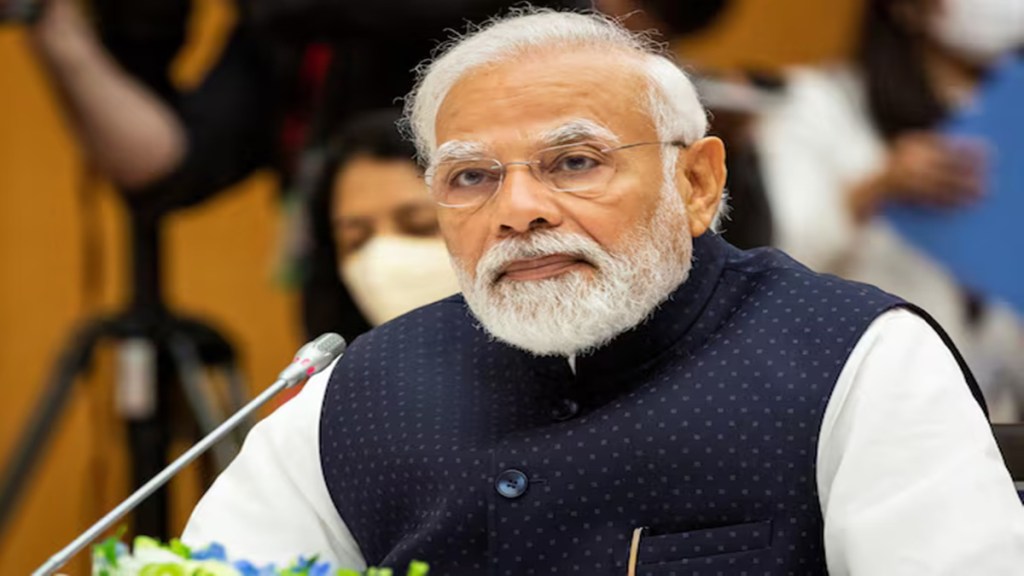Prime Minister Narendra Modi is set to strengthen India’s strategic ties with Southeast Asia as he heads to Vientiane, Laos, on October 10-11, 2024, for the 21st ASEAN-India Summit. This high-stakes visit, hosted by Laos, comes at a pivotal moment—marking ten years of India’s Act East Policy. As regional tensions simmer and economic partnerships deepen, the summit offers India and ASEAN leaders a critical platform to redefine their cooperation in the evolving Indo-Pacific landscape.
A Milestone for India’s Act East Policy
2024 marks a decade since India launched its Act East Policy, which has become the cornerstone of its diplomatic, trade, and security relationships with Southeast Asia. The policy, which has evolved into a Comprehensive Strategic Partnership, reflects India’s broader Indo-Pacific vision. The ASEAN-India Summit will serve as a crucial checkpoint to review the progress of these ties, while also setting a future roadmap for further cooperation in areas such as trade, connectivity, and security.
Over the years, ASEAN has played a central role in India’s regional strategy. This year’s summit will focus on deepening economic ties through technology, enhancing defense cooperation, and expanding fintech and heritage conservation efforts. Prime Minister Modi’s agenda reflects the importance of these growing relationships, which are now seen as critical pillars in maintaining peace, security, and economic growth in the Indo-Pacific.
Strengthening Strategic Partnerships
India’s participation in the ASEAN-India Summit is not just about symbolism; it’s about tangible outcomes. As Prime Minister Modi heads to Laos, his visit underscores India’s intention to consolidate its role as a key player in Southeast Asia. ASEAN remains an essential partner in India’s Act East Policy, and 2024 celebrates key diplomatic milestones, such as 75 years of relations with Indonesia and the Philippines, and 60 years with Singapore.
Recent high-level visits and bilateral talks with Vietnam, Malaysia, and Singapore have resulted in a range of new partnerships. India elevated its relationships with both Malaysia and Singapore to Comprehensive Strategic Partnerships, and during Modi’s recent historic visit to Brunei, an Enhanced Partnership was signed. In terms of economic cooperation, India’s agreement with Singapore on a Semiconductor Ecosystem Partnership reflects both countries’ commitment to developing resilient technology supply chains.
Regional Connectivity and Trade Boost
As part of India’s efforts to boost regional connectivity, new direct flights have been launched between Phnom Penh and New Delhi, with more expected soon between India and Brunei. These initiatives aim to enhance trade and tourism, which are vital for economic integration in the region. Connectivity plays a central role in India’s engagement with ASEAN, with initiatives that include digital infrastructure, fintech collaboration, and maritime linkages.
Additionally, India is playing a key role in preserving shared cultural heritage sites in the region, such as the restoration of the Vat Phou temple in Laos and the Angkor Wat in Cambodia. This reaffirms the deep-rooted cultural links between India and Southeast Asia, strengthening people-to-people ties that date back centuries.
Defense and Security: A New Focus
India’s engagement with ASEAN countries goes beyond trade and culture. Defense and security cooperation has emerged as a critical area of focus, with projects like the $5 million Army Software Park in Vietnam, jointly inaugurated by Modi and his Vietnamese counterpart in August 2024. These defense collaborations are part of India’s broader efforts to ensure peace and stability in the region, especially as the geopolitical dynamics in the Indo-Pacific evolve.
At the upcoming summit, further defense and security initiatives are expected to be discussed, particularly in maritime security and counter-terrorism cooperation. As regional security challenges intensify, the ASEAN-India partnership will play a key role in ensuring a stable and rules-based Indo-Pacific.
Humanitarian Efforts and Disaster Resilience
India’s contributions to ASEAN aren’t just about diplomacy and trade; they also include a significant focus on humanitarian aid and disaster relief. Operation Sadbhav, India’s humanitarian response to Typhoon Yagi, delivered emergency supplies to both Laos and Vietnam. The relief mission exemplifies India’s proactive stance in providing aid to its neighbors during times of crisis, reinforcing its role as a dependable partner in Southeast Asia.
Moreover, Vietnam’s recent decision to join the Coalition for Disaster Resilient Infrastructure (CDRI) during Prime Minister Modi’s visit further strengthens regional cooperation in disaster preparedness and resilience. This partnership will help Southeast Asian nations build infrastructure that can withstand natural disasters, a pressing issue for the region.
Looking Ahead: ASEAN-India Ties in a Shifting World
As Prime Minister Modi attends the 21st ASEAN-India Summit, the focus will be on strengthening the Comprehensive Strategic Partnership and laying out new goals for the next phase of ASEAN-India relations. The Indo-Pacific region faces numerous challenges, from security tensions to supply chain vulnerabilities. The ASEAN-India partnership is poised to address these issues head-on, ensuring that the region remains stable, prosperous, and resilient in the face of evolving geopolitical dynamics.
The ASEAN-India Summit, followed by the East Asia Summit, provides a critical platform for leaders to discuss these challenges and explore opportunities for deeper cooperation. With India marking a decade of its Act East Policy, the ties with ASEAN have never been more significant. The summit is expected to yield important decisions that will shape the future of the Indo-Pacific, with India and ASEAN playing a central role in ensuring the region’s continued peace and prosperity.

